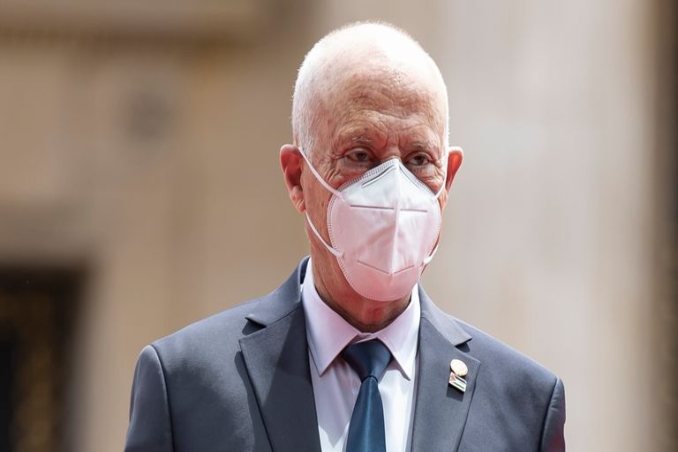Last updated on September 11th, 2021 at 07:56 am
Political parties of Tunisia have accused President Kaisd Saied of staging a coup in the country after sacking prime minister Hichem Mechichi and suspending the parliament. But Saied argues that he acted in accordance with the Constitution.
On Sunday, mass violent protests erupted across the country against the government’s mishandling of the Coronavirus pandemic and economic chaos. Following the protests, Prime Minister Mechichi was dismissed. He said that he would be handing over charge to whoever is elected by Saied as next PM, without playing a “disruptive element”.
Tunisia, often dubbed as a lone success story of Arab Spring revolutions, is facing a critical crisis in democracy after Parliament’s suspension.
Calls for Peace
The international community has called for a calmer course of action. US Secretary of State Antony Blinken called the Tunisian president on Monday urging him to “maintain open dialogue with all political actors and the Tunisian people”. European Union asked for all parties involved to respect law and avoid violence. United Nations said “all disputes… should be resolved through dialogue”. Arab League, Russia and Qatar too followed same advice.
READMORE: South Sudan has nominated a woman to head parliament
Allegations of coup as protests continue in Tunisia
Kais Saied, the independent President invoked an emergency article of Tunisia’s Constitution on Sunday night. This was in response to unprecedented violent protests across the country against biggest party of Tunisia, moderate Islamist Ennahda movement.
Following the sacking of PM, the capital city of Tunis turned to a celebratory ground with crowds waving flags and bursting firecrackers. The scenes were reminiscent to the 2011 protests in wake of Arab Spring that toppled Zine El Abidine Ben Ali, Tunisia’s longtime autocratic leader.
On Monday, Saied also removed the defense minister and acting justice minister.
The decision was also met with protesters demonstrating against the alleged coup. Supporters of Ennahda voters scuffled with supporters of the President on Monday outside the Parliament. “I’m here because I don’t agree with the decision of the president. We’ve assembled for democracy. It’s a unique decision… It’s the sort of decision Ben or Bourguiba [Tunisia’s former repressive rulers] would make. It’s not normal,” said Mongi Chouf, supporter of Ennahda side.
While many support the president’s decision, questions arise over legality of action. Invoking of Article 80 by president means total executive powers with him for unspecified period. “This isn’t just about Ennahda, it’s about the political system and all the parties,” said activist Henda Chennaoui. “[Saied] has built alliances within the army and the ministry of interior. He knows people are tired. He got the support he expected. This is about the whole political system … It’s failed. It’s been 10 years and it’s failed.”
The protests over Covid-19 restrictions are both sided. There are many people who support the restrictions due to Covid-19 surge in country. Till date only 7% of population has been fully vaccinated. Out of population of 12 million more than 18,000 have succumbed to the infection.

